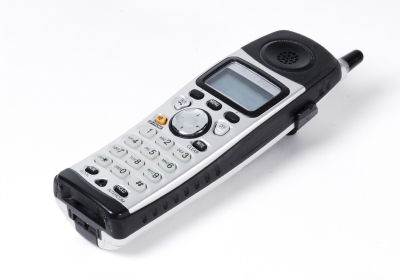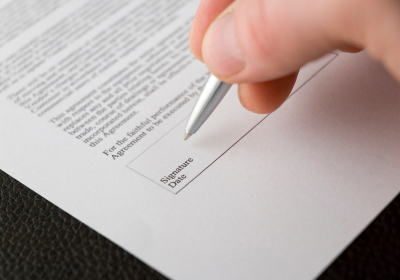
Profit and prosper with the best of Kiplinger's advice on investing, taxes, retirement, personal finance and much more. Delivered daily. Enter your email in the box and click Sign Me Up.
You are now subscribed
Your newsletter sign-up was successful
Want to add more newsletters?

Delivered daily
Kiplinger Today
Profit and prosper with the best of Kiplinger's advice on investing, taxes, retirement, personal finance and much more delivered daily. Smart money moves start here.

Sent five days a week
Kiplinger A Step Ahead
Get practical help to make better financial decisions in your everyday life, from spending to savings on top deals.

Delivered daily
Kiplinger Closing Bell
Get today's biggest financial and investing headlines delivered to your inbox every day the U.S. stock market is open.

Sent twice a week
Kiplinger Adviser Intel
Financial pros across the country share best practices and fresh tactics to preserve and grow your wealth.

Delivered weekly
Kiplinger Tax Tips
Trim your federal and state tax bills with practical tax-planning and tax-cutting strategies.

Sent twice a week
Kiplinger Retirement Tips
Your twice-a-week guide to planning and enjoying a financially secure and richly rewarding retirement

Sent bimonthly.
Kiplinger Adviser Angle
Insights for advisers, wealth managers and other financial professionals.

Sent twice a week
Kiplinger Investing Weekly
Your twice-a-week roundup of promising stocks, funds, companies and industries you should consider, ones you should avoid, and why.

Sent weekly for six weeks
Kiplinger Invest for Retirement
Your step-by-step six-part series on how to invest for retirement, from devising a successful strategy to exactly which investments to choose.
Preventing telemarketers from buzzing you at dinnertime takes constant vigilance. So here are some tips that might help you evade telemarketers or at least get some of the ringing out of your ear.
By Thomas M. Anderson

You're Still on the List, for Now.
The first entries into the National Do Not Call Registry are set to be expunged in the summer of 2008 because the 2003 law stated that all numbers would expire after five years. But the Federal Trade Commission (FTC) is holding off deleting numbers until Congress weighs in. "People shouldn't have to re-up every five years, especially because they get no notification that their names are being taken off the list," says Rep. Mike Doyle (D-Pa.), who is sponsoring legislation that would make numbers on the list permanent.
If you're not on the registry yet, call 888-382-1222 or register online at www.donotcall.gov

You May Have to Refresh Your State Registration.
Fourteen states -- among them Florida, New Jersey and Texas -- maintain their own registries, and some of those lists are tougher on telemarketers than the feds are. But states that have their own programs may boot you off after five years.
That is the case in Pennsylvania, where officials are pruning phone numbers of residents who fail to renew. Nearly 1.2 million people have re-registered their numbers to prevent them from expiring after a state ad campaign warned about the list purge.

Signing Up Doesn't Mean You Won't Be Harassed.
State and national do-not-call lists permit phone pitches from charities, survey researchers and political campaigns. This presidential election year, so-called robo-calls from candidates are inevitable, and resistance is futile.
All you can do is routinely check caller ID and let such automated messages go directly to voice mail -- then delete them. "Political calls are not covered because they are not trying to sell you anything," says Lois Greisman, the FTC associate director who enforces the national registry.

Buy Anything and They May Interrupt Your Dinner.
Under the National Do Not Call Registry, any company you've done business with in the past 18 months can hassle you by phone. Ditto for companies to which you've given written consent (often buried in the fine print of sweepstakes entries) to remain on their call lists.
To stop spiels that get past your phone firewall, request that your number be put on the company's internal do-not-call list, which every business is required to have.

Tenacious Marketers Are Gonna Find You.
With more than 145 million phone numbers out of bounds to telemarketers, some of them are using spam and junk mail to reach potential customers, says Beth Givens, director of the Privacy Rights Clearinghouse.
The CAN-SPAM Act of 2003 requires e-mail solicitors to give you the option to "unsubscribe" by clicking a link in the promotion. To stem the tide of junk mail, register with the Direct Marketing Association's Mail Preference Service ($1; call 212-768-7277 or go to www.dmachoice.org and click on "Consumer Assistance"). The DMA also offers other do-not-contact lists.

It Pays to Complain.
Federal regulators rely on consumer complaints to enforce the do-not-call lists, the FTC's Greisman says. Since the National Do Not Call Registry was established, the FTC and Justice Department have filed 34 enforcement actions against individuals and companies they claim have violated the list.
In total, the feds have collected more than $16 million in civil penalties -- the largest of which was $5.3 million from DirectTV in 2005. Plus, consumers have won $8 million in restitution against telemarketers who broke the do-not-call rules. To file a complaint, go to the registry Web site.
Profit and prosper with the best of Kiplinger's advice on investing, taxes, retirement, personal finance and much more. Delivered daily. Enter your email in the box and click Sign Me Up.
-
 Dow Leads in Mixed Session on Amgen Earnings: Stock Market Today
Dow Leads in Mixed Session on Amgen Earnings: Stock Market TodayThe rest of Wall Street struggled as Advanced Micro Devices earnings caused a chip-stock sell-off.
-
 How to Watch the 2026 Winter Olympics Without Overpaying
How to Watch the 2026 Winter Olympics Without OverpayingHere’s how to stream the 2026 Winter Olympics live, including low-cost viewing options, Peacock access and ways to catch your favorite athletes and events from anywhere.
-
 Here’s How to Stream the Super Bowl for Less
Here’s How to Stream the Super Bowl for LessWe'll show you the least expensive ways to stream football's biggest event.
-
 What to Do With Your Tax Refund: 6 Ways to Bring Growth
What to Do With Your Tax Refund: 6 Ways to Bring GrowthUse your 2024 tax refund to boost short-term or long-term financial goals by putting it in one of these six places.
-
 What Does Medicare Not Cover? Eight Things You Should Know
What Does Medicare Not Cover? Eight Things You Should KnowMedicare Part A and Part B leave gaps in your healthcare coverage. But Medicare Advantage has problems, too.
-
 12 Great Places to Retire in the Midwest
12 Great Places to Retire in the MidwestPlaces to live Here are our retirement picks in the 12 midwestern states.
-
 15 Cheapest Small Towns to Live In
15 Cheapest Small Towns to Live InThe cheapest small towns might not be for everyone, but their charms can make them the best places to live for plenty of folks.
-
 Best Cold Weather Places to Retire
Best Cold Weather Places to RetirePlaces to live Some like it hot; others, not so much. Here are the 12 best places to retire if you can't stand the heat.
-
 15 Reasons You'll Regret an RV in Retirement
15 Reasons You'll Regret an RV in RetirementMaking Your Money Last Here's why you might regret an RV in retirement. RV-savvy retirees talk about the downsides of spending retirement in a motorhome, travel trailer, fifth wheel, or other recreational vehicle.
-
 The 24 Cheapest Places To Retire in the US
The 24 Cheapest Places To Retire in the USWhen you're trying to balance a fixed income with an enjoyable retirement, the cost of living is a crucial factor to consider. Is your city the best?
-
 The Six Best Places to Retire in New England
The Six Best Places to Retire in New Englandplaces to live Thinking about a move to New England for retirement? Here are the best places to land for quality of life, affordability and other criteria.
